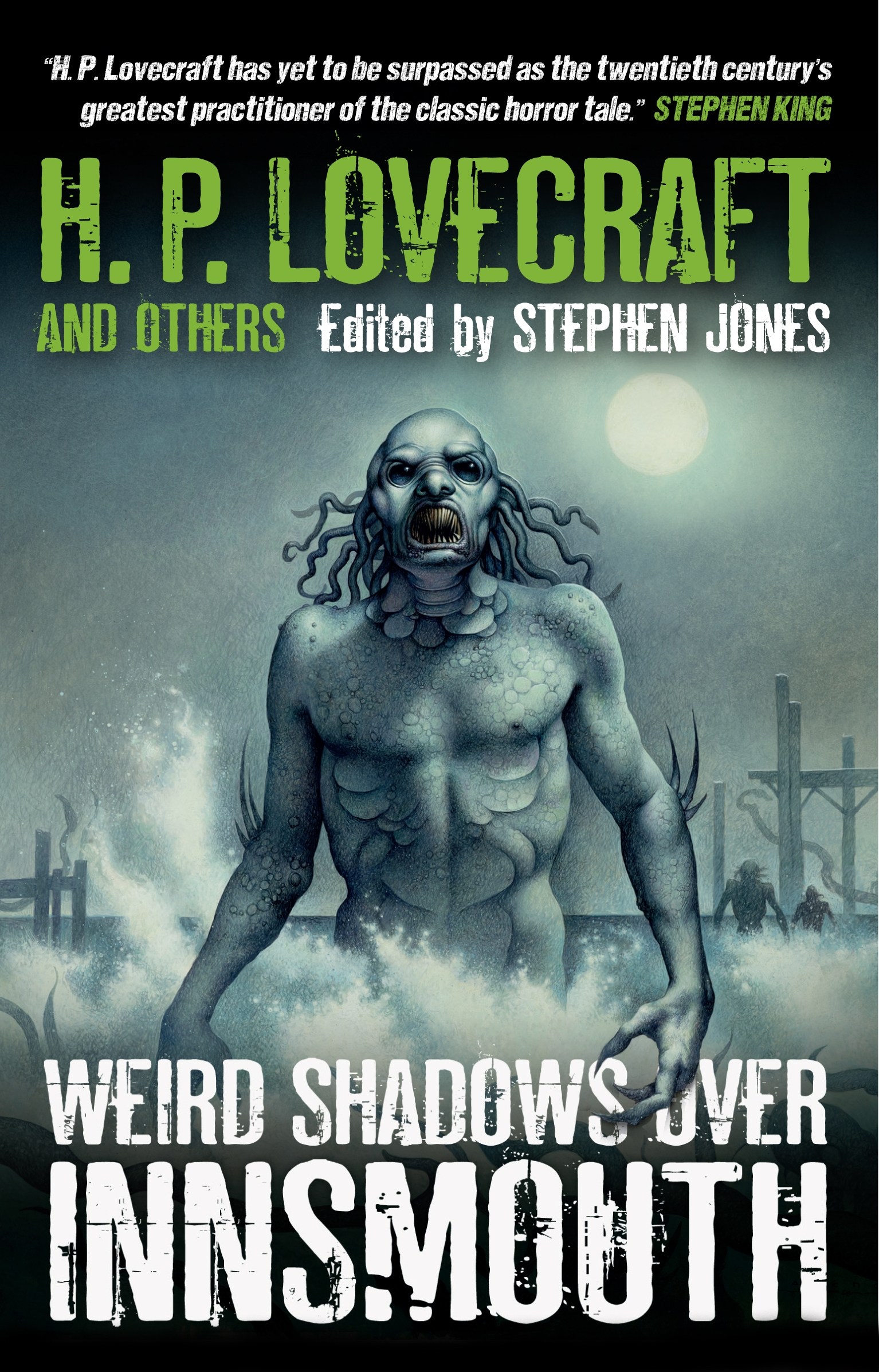
The Shadow Over Innsmouth is a classic horror novella by H.P. Lovecraft. It tells the first-person story of a young man on break from college who travels to an isolated seaside New England village and discovers that it is run by a cult and most of the townsfolk are doomed to devolve into weird amphibious monstrosities as they age. The cultists attempt to murder him and he escapes, only to later discover that he is descended from the sea captain who brought the cult and monsters to the village and that he, too, is doomed.
The most striking thing about the novella is its atmosphere and setting. Lovecraft creates a viscerally repulsive picture of the decaying town and its degenerate inhabitants:
We met no one on the road, but presently began to pass deserted farms in varying stages of ruin. Then I noticed a few inhabited houses with rags stuffed in the broken windows and shells and dead fish lying about the littered yards. Once or twice I saw listless-looking people working in barren gardens or digging clams on the fishy-smelling beach below, and groups of dirty, simian-visaged children playing around weed-grown doorsteps. Somehow these people seemed more disquieting than the dismal buildings, for almost every one had certain peculiarities of face and motions which I instinctively disliked without being able to define or comprehend them. For a second I thought this typical physique suggested some picture I had seen, perhaps in a book, under circumstances of particular horror or melancholy; but this pseudo-recollection passed very quickly.
As the bus reached a lower level I began to catch the steady note of a waterfall through the unnatural stillness. The leaning, unpainted houses grew thicker, lined both sides of the road … All the houses were apparently deserted, and there were occasional gaps where tumbledown chimneys and cellar walls told of buildings that had collapsed. Pervading everything was the most nauseous fishy odour imaginable.
The novella is full of passages like this. Nearly every description of the town makes it clear that it is a grim, desolate, foul-smelling place, and the inhabitants are all lurking, sullen, disfigured. And above all, the place stinks of fish.
Right off the bat, Lovecraft conveys destitution and abject slovenliness in his description of the houses. They’re unpainted. Many are deserted entirely. Roofs are caving in. The broken windows are not even boarded but carelessly stuffed with rags. And there are dead fish in the junk-strewn yards. If nothing else, the passage will make even the messiest reader feel pretty good about his or her housekeeping!
With regard the villagers, we first have the “dirty, simian-visaged” children whom the narrator has been led to believe are the descendants of South Sea islanders. Lovecraft evokes Robert Louis Stevenson’s portrayal of Mr. Hyde in his describing the people as being vaguely and distastefully deformed. But perhaps most important, the narrator’s brief musing that he might have seen people like this before foreshadows his final horrific realization that he, too, has Innsmouth blood and will soon be swimming with the fishes for eternity.
While the relentless grotesqueness of Lovecraft’s descriptions becomes overkill at times, it certainly paints a vivid, memorable picture of Innsmouth. This type of description is a hallmark of his prose, and so those who seek to write Lovecraftian weird fiction need to at least partially emulate his style to make their manuscripts fit the sub-genre. But writers also need to work to make their prose compelling to readers who doesn’t know or care about the conventions of Lovecraftian fiction. There’s a balance to be struck there, and it’s a challenge to meet it.
Leave a Reply
You must be logged in to post a comment.